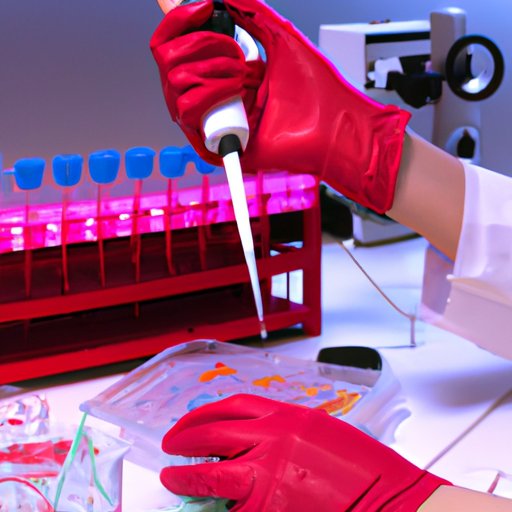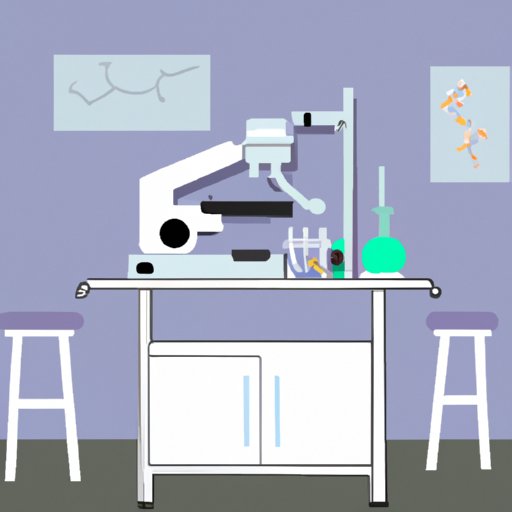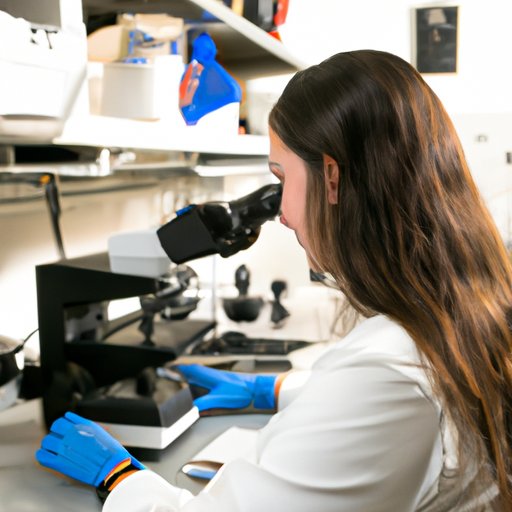Overview of a Bachelor in Medical Laboratory Science
A Bachelor in Medical Laboratory Science (MLS) is a four-year undergraduate degree that covers the study of laboratory procedures and techniques used to diagnose and treat diseases. Medical laboratory scientists use laboratory tests to analyze body fluids, tissues, and cells to detect abnormalities or diseases in patients. They also perform tests to measure levels of drugs, hormones, and other substances in the body.
The purpose of an MLS program is to prepare students for careers as medical laboratory scientists who are able to accurately and effectively perform laboratory tests and interpret results. Students who earn a Bachelor in Medical Laboratory Science will gain a comprehensive understanding of the principles and practices of medical laboratory science, including clinical chemistry, immunology, hematology, and microbiology.
With a Bachelor in Medical Laboratory Science, graduates can pursue a variety of career opportunities, such as medical technologists, clinical laboratory scientists, and molecular diagnostics specialists. With the right training and experience, they may even move into management roles.

Advantages of Earning a Bachelor in Medical Laboratory Science
Earning a Bachelor in Medical Laboratory Science provides numerous advantages to students. According to a survey conducted by the American Society for Clinical Laboratory Science, 81% of participants said that having a bachelor’s degree increased their job opportunities. In addition, 82% of those surveyed said that having a bachelor’s degree resulted in higher salaries than those with just an associate degree.
Furthermore, students who earn a Bachelor in Medical Laboratory Science have a greater understanding of laboratory procedures and techniques, which allows them to be more effective and efficient in their work. This knowledge can help medical laboratory scientists better serve their patients and provide the best possible care.
Steps to Becoming a Medical Laboratory Scientist
In order to become a medical laboratory scientist, there are several steps that must be taken. The first step is to research programs to find one that fits your needs and interests. There are a variety of accredited programs available, so it is important to do your research to ensure you find one that meets your educational goals.
Once you have identified an accredited program, the next step is to get accepted into the program. This requires submitting an application, transcripts, letters of recommendation, and other required documents. After being accepted into the program, the next step is to complete coursework and practicum requirements.
After completing the program, the last step is to obtain certification. Most states require medical laboratory scientists to obtain certification from a recognized certifying organization. This ensures that medical laboratory scientists meet minimum standards of practice and safety.

What You Learn in a Bachelor in Medical Laboratory Science Program
A Bachelor in Medical Laboratory Science program provides a comprehensive education in the medical laboratory sciences. Students learn a variety of topics, such as clinical chemistry, immunology, hematology, and microbiology. These courses cover the theory and practical aspects of laboratory testing, which prepares students for a successful career in the field.
Students also learn how to use complex laboratory equipment and instruments, as well as the principles and techniques of quality assurance and troubleshooting. Additionally, students gain an understanding of medical terminology and the ethical and legal issues related to medical laboratory science.
Accredited Programs for a Bachelor in Medical Laboratory Science
In order to become a certified medical laboratory scientist, it is essential to find an accredited program. Accreditation ensures that the program meets certain educational standards and provides students with a comprehensive education in the medical laboratory sciences.
The National Accrediting Agency for Clinical Laboratory Sciences (NAACLS) is the leading accrediting organization for medical laboratory science programs. The NAACLS website provides a list of accredited programs, which can be sorted by state and program type. Additionally, the American Society for Clinical Laboratory Science (ASCLS) provides a list of accredited programs on its website.

Professional Organizations for Medical Laboratory Scientists
Joining professional organizations is a great way for medical laboratory scientists to stay up-to-date on the latest developments in the field and network with other professionals. Professional organizations also provide resources and support for medical laboratory scientists, such as continuing education opportunities and job postings.
Some of the most popular professional organizations for medical laboratory scientists include the American Society for Clinical Laboratory Science (ASCLS), the National Society for Medical Laboratory Science (NSMLS), and the American Association for Clinical Chemistry (AACC). Each organization has its own specific membership requirements, but all offer valuable resources and support for medical laboratory scientists.
Conclusion
A Bachelor in Medical Laboratory Science opens up a world of career opportunities and provides the student with a comprehensive education in the medical laboratory sciences. With the right program, certification, and professional organizations, you can pursue a successful career in this field.
(Note: Is this article not meeting your expectations? Do you have knowledge or insights to share? Unlock new opportunities and expand your reach by joining our authors team. Click Registration to join us and share your expertise with our readers.)
